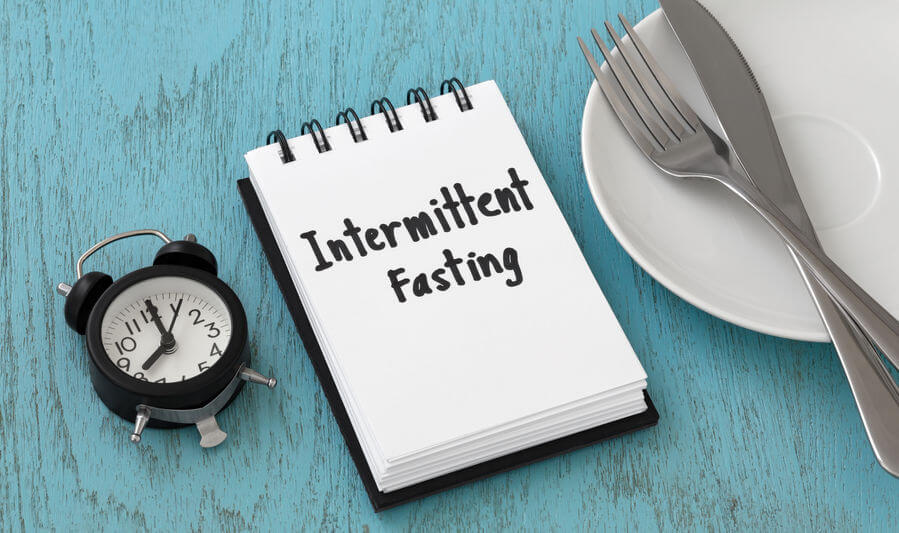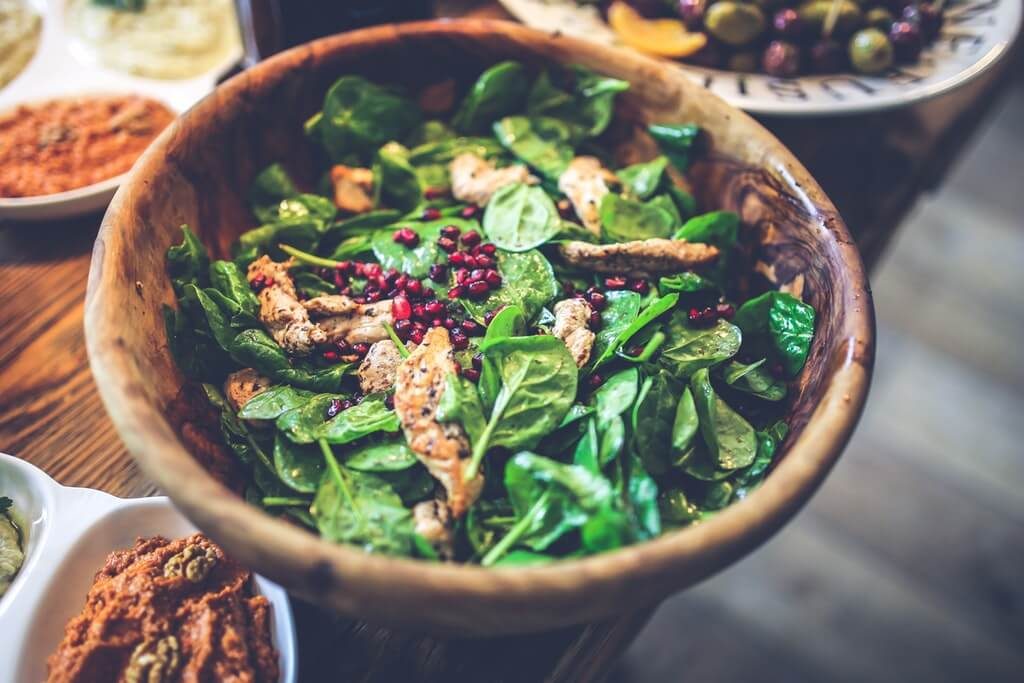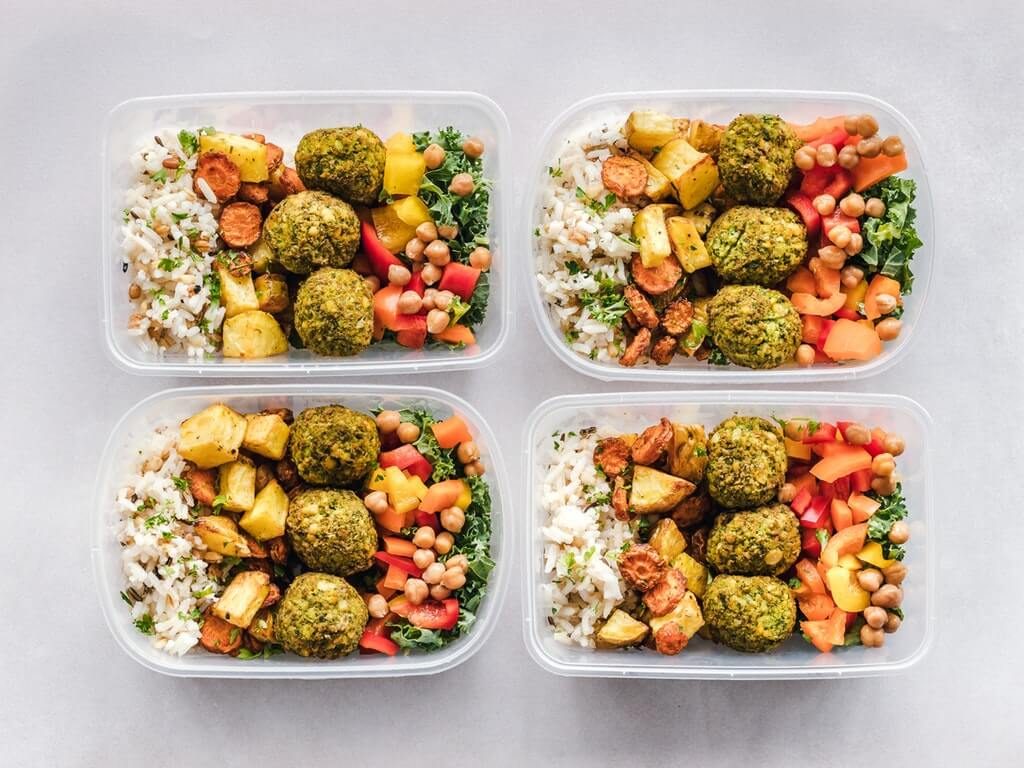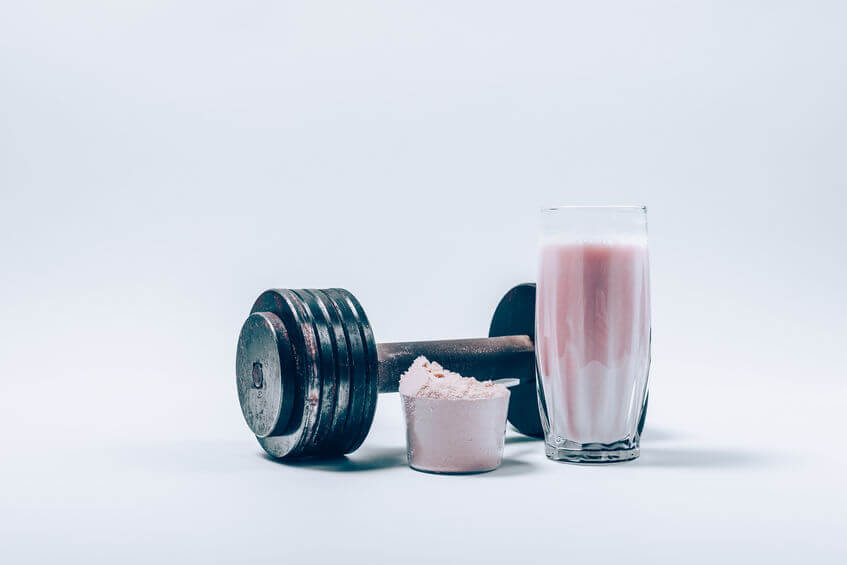Learn the Health Benefits of Intermittent Fasting for Optimal Function
Well, it’s finally happened. The centuries-old pattern of eating known as “fasting” has taken center stage.
Well, it’s actually not eating at all. It’s the complete opposite. And one particular form of fasting known as “intermittent fasting” or “IF” takes up most of the spotlight.
Let’s dig a little deeper about this and clear the air on how YOU can use IF to its fullest advantage.
Contents
Intermittent Fasting Defined
First and foremost, there is a common misconception when it comes to intermittent fasting. People think, when they eat in a shortened window of time every day of the week, they are doing IF.
In reality, this is technically a “form” of intermittent fasting called time-restricted eating, or TRE for short.
Some like to refer to this as time-restricted feeding. It really doesn’t matter. The bottom line is, your eating window is shorter than your fasting window.
A common protocol followed here is the 16/8, which means you fast for 16 hours and eat in an 8-hour window. But any window where you fast for more than 12 hours is still considered TRE.
Now let’s shift our focus to actual intermittent fasting.
To be specific, you choose one or two or three days a week to fast for an extended period of time and then follow a regular eating schedule on the other days.
This usually consists of a 24-hour fast. For example, if you choose to fast on Tuesday and Thursday for 24 hours and then follow a regular three-meals-a-day plan on the others, this would be an example of IF.
Some choose to eat in a 4-hour window on said days, and others do something called alternate day fasting where they’ll eat normally one day, fast the next and continue to alternate back and forth.
All of these methods can be tweaked and tailored to your individual lifestyle, goals and levels of discipline.
Sidenote: if you’re a woman, we highly recommend you read our in-depth guide on Intermittent Fasting for Women.
Specific Benefits of Intermittent Fasting
Are you ready for some shocking news?
Even though fasting has become a household thing and a lot of people do it, there are still a mass amount of others who are strongly opposed.
All because they think they’ll pass out, have no energy or not have the ability to think straight. Well, if this sounds like you, you are in for a big wake-up call.
Fix your eyes on this list of benefits and you might change your tune. And for the rest of you, pay attention and use these as motivation to start fasting.
Weight Loss
There is a big myth out there that a lot of people still believe, but the record needs to be set straight.
Eating six-meals-a-day, or “grazing,” as it’s often called, does NOT promote faster weight loss.
When you eat less frequently, in the form of IF, your hunger actually goes down over time. If your hunger goes down, you will eat less. And if you are doing intermittent fasting, you will eat less often. Do the math!
This, in turn, can expedite weight loss.
Your body doesn’t go into starvation mode, like the grazers want you to think. That couldn’t be more ridiculous.
Here’s how this actually works.
You have a hunger-stimulating hormone called ghrelin and a hunger-suppressing hormone called leptin. When you are used to eating at the same time every day, ghrelin rises, you get hungry and you eat.
Leptin then rises and your satisfied. If you get into a pattern of eating every two to three hours, ghrelin will also get used to spiking in these time frames. You then eat, leptin rises and your hunger stabilizes.
If you were to skip one of those meals, ghrelin would rise and you would likely become hangry. Then you’d give in and eat. When you start an IF protocol in any form, the first few days or even weeks will be tough.
But as time goes on, ghrelin will start to lower and it will be more balanced out.
Then you will be able to move on with your fasting plan with much more ease and success. And when you are not eating, your body will burn fat for energy.
Over time, you will become fat-adapted, where your main fuel source is fat. It’s really that simple.
Better Brain Function
We eluded to this earlier. But let’s expand a little further.
Brain function relies on food, just like physical energy. And it also can suffer peaks and valleys of energy, just like your body.
When you deprive yourself of food in the form of intermittent fasting, magic happens inside your head.
You do not suffer brain fog. You actually experience a spike in brain function.
The main reason for this is there is no sharp rise and fall of blood sugar, which often occurs when someone eats first thing in the morning.
Especially when it’s a carb-heavy meal. You are then left with a clear head and can focus on the tasks at hand with a lot more tact and clarity.
I might also mention that a default benefit to this is that your moods stay more stable. And the fun part is, the longer you fast, the better your mood gets.
So you can also dodge the spikes in the mood that you might encounter when you eat often.
I know this goes completely against everything you’ve ever been told about breakfast. A lot of people say it’s the most important meal of the day.
But until you push back the time you eat and run an experiment with yourself, you will never know. So I highly encourage you to do just that.
And by the way, breakfast is the first meal you eat to break your fast. If it occurs at 11 am, 12 pm, 1 pm or 5 pm, it’s still breakfast.
Hormonal Balance
Trying to balance hormones can often feel like trying to walk across a slackline. But if you are able to master this process, you will be golden.
We just mentioned a few hormones that you want to pay strict attention to.
First, you have ghrelin, then you have leptin, then you have insulin and then you have human growth hormone (HGH). You already learned about ghrelin and leptin, so let’s move forward to insulin and HGH.
Every time you eat a meal that contains carbs and protein, your blood sugar levels rise. Then your pancreas releases insulin to stabilize said levels.
Far too often, people eat meals with a lot of protein and a good amount of evil simple carbs. And they can be in liquid form too.
Beer, soda, sweet teas and juice all fall into this category. So when you eat bacon, eggs, toast and orange juice for breakfast, you are setting yourself up for a major boost in energy and an equally major crash shortly thereafter.
By doing intermittent fasting, you will not spike your blood sugar levels so high and so often, so you will also not spike your insulin levels.
This will bring insulin back to its normal range and you will have more energy. Plus, since insulin is a fat-storage hormone, you will be less apt to gain weight.
Lastly, HGH is your key hormone for building and maintaining muscle. And it also contributes to energy levels. When insulin levels drop, HGH levels rise. This spells good news for your musculature, and physical and mental energy.
Disease Risk Reduction
When you are not eating, your body gets to go through a natural detox.
This causes you to get a nice boost in immune function, thus making you more resistant to chronic diseases and even common colds.
But there’s more to the story.
Do you remember our talk about insulin and grazing?
Well, another myth that has been hammered down everyone’s throat over the years is that eating small, balanced meals will prevent diabetes. But that couldn’t be farther from the truth. Just think about this for a second.
Every time you eat a meal, your blood sugar levels rise. Then your insulin levels rise.
Let’s say you do eat six meals a day between the hours of 6 am and 10 pm. First of all, you are doing the exact opposite of a TRE protocol where you are eating for 16 hours and fasting for only 8.
Secondly, your pancreas is slowly releasing insulin all day long and into the night!
Multiply this by 7 days a week, and what do you think will eventually happen?
The worst-case scenario is, your pancreas will get worn out and eventually stop producing insulin. Then you are left with the onset of diabetes.
Follow an intermittent fasting protocol and you won’t have to worry about any such thing.
Improved Gut Health
Did you ever hear the phrase, “You are what you eat.” Well, it’s more like, you are what you digest.
If your gut health is off, you will not be able to break down food and it won’t have much of a positive impact on your body.
When you fast for about 24 hours, your stomach experiences a boost in stem cells. This, in turn, promotes more healthy bacteria growth and you then improve your ability to digest food.
Over time, this will have a big impact on reducing inflammation and improving energy and brain function.
In the big picture, everything starts in the gut and works outward.
By simply adding one or two days of IF to your weekly schedule, you can really change the game with your gut health and start tapping into this benefit.
How to do Intermittent Fasting
We’ve covered a lot of ground so far on the benefits of intermittent fasting. But I feel we should go a little deeper on the “how.”
If you ever met someone who quit smoking, there is a better than average chance, they didn’t go from 10 packs a day to zero, overnight.
They likely followed a plan to slowly wean themselves off over time. That’s the best-case scenario with any type of lifestyle habit that you want to instill for the long-haul.
Well, IF is the same way.
If you have never tried fasting before in your life, it’s not realistic to think you can just pop off a few 24-hour fasts in a week.
The best approach to take is to work yourself into a TRE protocol first to get your body adapted. Start off with a mere 12 hours. Then work your way up to 15 or 16 on a daily basis.
THEN, add one longer day of fasting a week to your regimen that lasts 18 to 24 hours. Start at the lower number, then gradually increase it until you can do 24 with relative ease.
At that point, you can choose to do 2 days a week and follow the same strategy on the second day.
Then if you want to eventually do 3 days a week, follow the same strategy on the third day – aim for 18 hours and gradually build your way up to 24.
As you can see, this is not a get-rich-quick scheme and it takes time to build yourself up. But again, that’s what causes lasting changes.
Best Foods to Eat While Doing Intermittent Fasting
Something that is often not talked about is the foods you should choose when doing IF.
As mentioned in the benefits section, improved gut health is one of the key things that happen with longer fasts.
This should actually be at the forefront of your brain when you choose to do intermittent fasting. Well, fasting alone helps with this, but the foods you choose to eat put this into overdrive
And the best foods for the job are high in prebiotics and probiotics.
You are probably well aware of probiotics and the many supplements that are offered at your local health-food stores. But prebiotics are equally as important, if not more. Probiotics actually already reside in your gut. They ARE the healthy bacteria that people refer to.
What you want to do is feed them with prebiotics to make sure they stay in good shape. And you can do this by adding certain foods to your diet like asparagus, onions, garlic, leeks, bananas, oatmeal, oat bran, Jerusalem artichokes, edamame, and chicory root.
Then when you do consume probiotic-rich foods, you get a one-two punch of beneficial gut bacteria. And just in case you need some probiotic options, sauerkraut, kimchi, miso, tempeh, yogurt, kefir, and kombucha all fall into this category.
Knowing this information, you can now structure your meals in a way that includes some of these foods and beverages.
Working Out While Intermittent Fasting
Are you ready for another knowledge bomb? Check this one out.
You do not need to eat right before your workouts.
In fact, I highly suggest you get to the point where you work out after fasting for 10 to 12 hours.
In this case, you’d likely have to throw down first thing in the morning. But that’s actually a good thing.
You see, when you work out fasted, your insulin levels are low and your HGH levels are high. This spells good news in two ways.
First of all, as mentioned above, HGH is key for building and maintaining muscle mass. If you work out with it naturally high through fasting, you will be able to gain lean muscle faster.
Secondly, when you go into the gym on an empty stomach, over time, your body will become fat-adapted. That’s another thing I mentioned earlier. Just doing IF or TRE alone can make this happen. But when you add the element of fasted workouts to the mix, it will occur even faster.
Lastly, when you work out fasted, you don’t have to worry about short-term annoyances like stomach cramps, ultra-labored breathing and the dreaded trip to the bathroom to vomit.
Just like intermittent fasting in general, it takes a little while to get used to fasted workouts. But once you do, it’ll be second nature and you’ll wish you had started a lot sooner.
Tips on IF
If you follow a TRE plan, and eat in an 8-hour window, it is best to consume just two meals with no snacks or caloric beverages in between. This allows your blood sugar and insulin levels to come back down to normal.
Additionally, since you are only eating a couple of meals a day, you might want to consider supplementing to make sure you get enough calories and raw materials to maintain your strength and muscle mass.
In this case, protein powder is a good option. Have a look at our article on the best protein powders on the market to ensure that you get a good source.
Final Word on Intermittent Fasting
If intermittent fasting and all of its forms are not for you, check out our article on other diet plans. There are a lot of good options in there that might resonate better with you.
The keto diet, for example, is a very popular trend these days. I’d say it’s equally as popular as fasting. The idea here is to limit your carb intake to get your body into a state where it is burning fat for energy.
In other words, this is another way to become fat-adapted without actually fasting.
But some people want to get into “ketosis” faster and they look to supplements for the assist. If this is of interest to you, check out our article on the best supplements for the ketogenic diet.
Lastly, I want to give you one more piece of information. You can apply any diet plan to intermittent fasting.
In other words, you can do vegan, keto, paleo, carnivore or whatever you like. The benefits of fasting will still exist.
As long as your dietary choice is in your best interest and works for you, then you can’t go wrong.
[starbox id=kkikuts]








